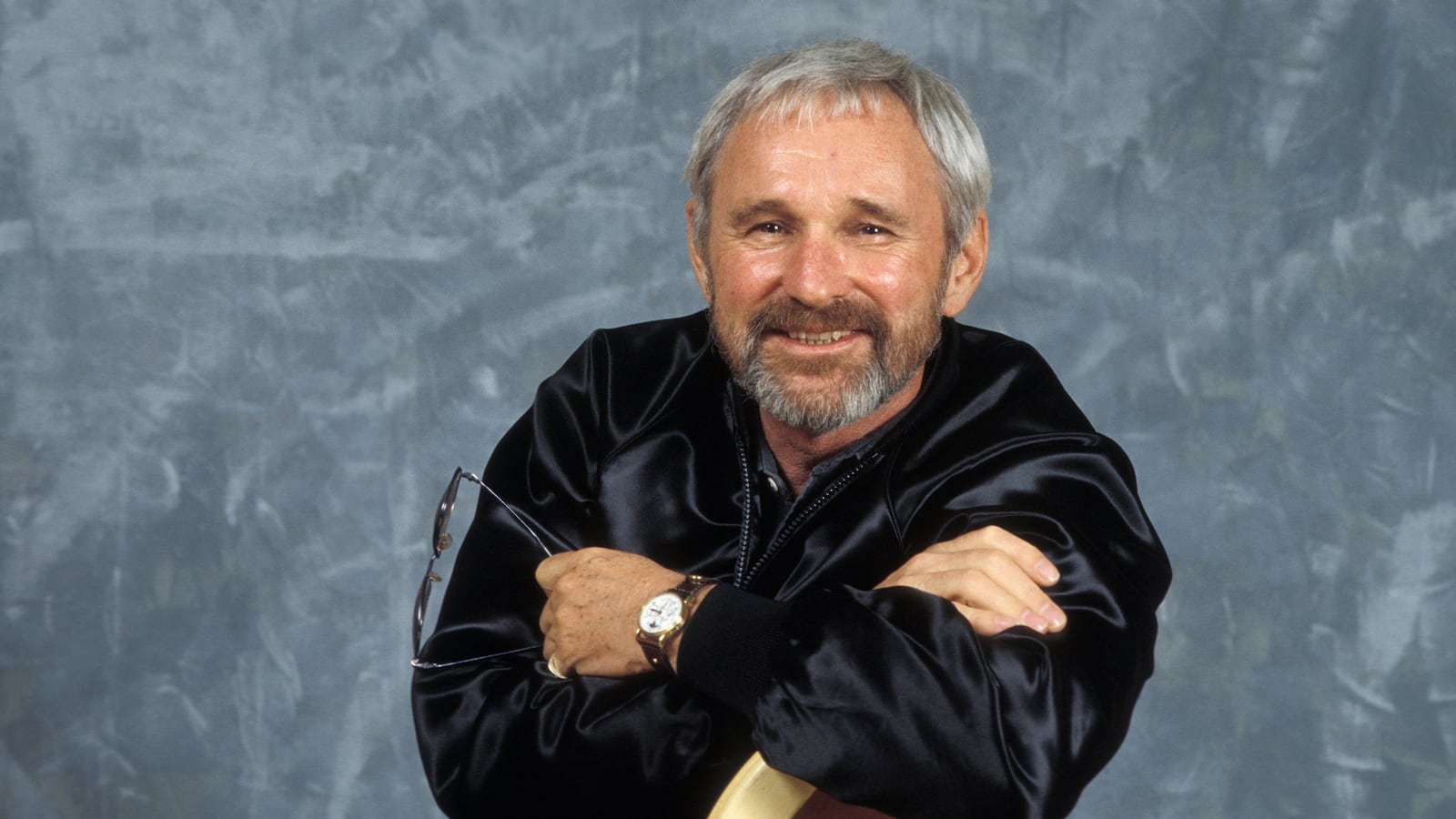Norman Jewison, the celebrated Canadian director who seemed capable of capturing anything on film with flair and temerity, pumping out fizzy comedies and sharp-tongued satires alongside edgier dramas that centered social issues across his nearly 50-year career, died on Saturday. He was 97.
Jewison died “peacefully,” his publicist, Jeff Sanderson, told the Associated Press. Sanderson declined to provide further details, but Variety reported that the director had died at his Los Angeles home.
Jewison was nominated for the Academy Award for best director three times across three decades, for 1967’s racial drama In the Heat of the Night, 1971’s big-budget musical Fiddler on the Roof, and 1987’s Italian-American rom-com Moonstruck. Though he was thwarted out of the directing statuette each time, In the Heat of the Night would claim the Oscar for best picture, beating out both Bonnie and Clyde and The Graduate. Jewison was also honored with the Academy’s prestigious Irving G. Thalberg Memorial Award in 1999.
Born in 1926 in Toronto, Jewison found work as a cab driver and radio actor before landing steady work with Canada’s CBC Television, producing and directing variety shows, dramas, and specials. He spent much of the 1950s cutting his teeth both there and at NBC in New York before leaping headlong into his first feature film.
Armed with a thumbs-up from Tony Curtis and Janet Leigh, Jewison fixed his gaze on Hollywood, striking out west to direct 40 Pounds of Trouble. The slapstick comedy, one of the first movies to ever be filmed at Disneyland, paved the way for him to take on other lighthearted fare, including two Doris Day pictures.
His breakthrough as a dramatic voice with which to be reckoned, however, wasn’t far off. In 1965, he directed the Steve McQueen vehicle The Cincinnati Kid, having snatched the reins after the original director, Sam Peckinpah, was fired shortly after production began. The ‘60s would also see him put out the Cold War comedy The Russians Are Coming, the Russians Are Coming (1966), which garnered four Oscar nominations; heist caper The Thomas Crown Affair (1968), and charming nostalgia-bait picture Gaily, Gaily (1969).
But the crowning jewel of his output that decade was undoubtedly In the Heat of the Night, which starred Sidney Poitier as a Black police detective who becomes embroiled in murder mystery in a small Southern town.
Recalling an encounter with Robert F. Kennedy during the shoot, Jewison explained to The Hollywood Reporter in 2011, “I told him it was a film about tolerance. So he listened and nodded and said, ‘You know, Norman, timing is everything. In politics, in art, in life itself.’ I never forgot that.”
Indeed, the film’s timing could not have been more appropriate. Opening amid the long, hot summer of 1967, when scores of racial justice riots swept across the U.S., In the Heat of the Night reflected the tense national mood.
“In January 1968, I was given the New York Critics’ Circle award for best drama,” Jewison told The Guardian in 2016. “And who was presenting but Robert F Kennedy? ‘I told you the timing was right,’ he said.”
Four days before the ceremony was scheduled to be held, Martin Luther King Jr. was assassinated. Jewison attended King’s funeral, according to The Hollywood Reporter. When the Oscars were eventually held, In the Heat of the Night collected five of the seven awards for which it had been nominated. After Kennedy’s assassination followed a few months later, Jewison moved to England.
“I said to myself: ‘This is a country where they kill off their heroes. I’ve got to get out of here,’” he recalled to The Guardian.
From his new base in London, Jewison hit the new decade running. He turned to Broadway for inspiration, adapting both Fiddler on the Roof and the Andrew Lloyd Webber rock opera Jesus Christ Superstar for the silver screen. With Fiddler, Jewison opted to bring in a darker, more realistic tone, shunting much of the original stage version’s levity. It paid off, becoming the highest-grossing film of 1971 and scoring eight nominations at the next year’s Oscars. It is still considered one of the greatest musical films of all time.
Even as he continued to probe issues of war, race, religion, and murder in movies like A Soldier’s Story (1984), Agnes of God (1985), and The Hurricane (1999), Jewison never lost his comedic brio. Moonstruck, starring an effervescent Cher and a smoldering, one-armed Nicholas Cage, became one of the most famous romances ever made, and took in what was then a staggering $122 million against a $15 million budget.
“Farewell Sweet Prince,” Cher tweeted on Monday. “Thank U For One Of The Greatest, Happiest, Most Fun Experiences Of My Life. Without U, I Would Not Have My Beautiful Golden Man”—referring to her Oscar for best actress, which she collected alongside her onscreen mother, Olympia Dukakis, who won best supporting actress.
“Script, Actors, Etc, NEEDED U DEAR,” Cher continued. “NORMAN JEWISON LIVES ON THROUGH HIS WORK.”





